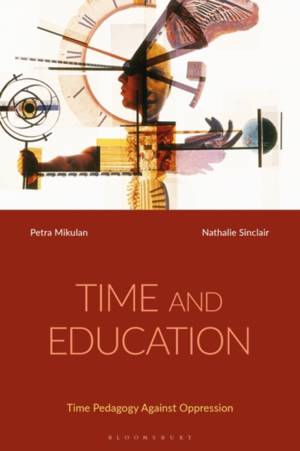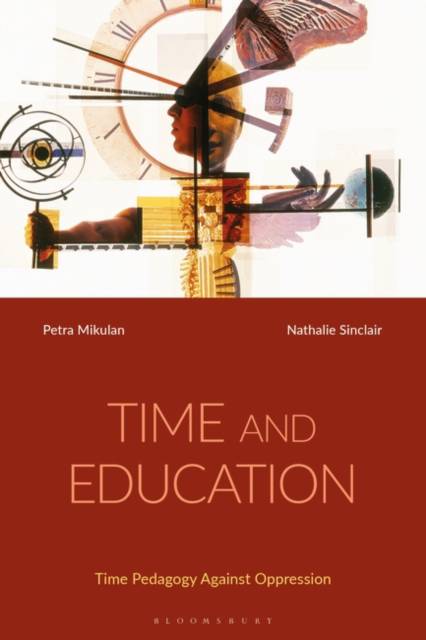
- Afhalen na 1 uur in een winkel met voorraad
- Gratis thuislevering in België vanaf € 30
- Ruim aanbod met 7 miljoen producten
- Afhalen na 1 uur in een winkel met voorraad
- Gratis thuislevering in België vanaf € 30
- Ruim aanbod met 7 miljoen producten
Zoeken
Time and Education
Time Pedagogy Against Oppression
Petra Mikulan, Nathalie Sinclair
Hardcover | Engels
€ 220,45
+ 440 punten
Omschrijving
Despite pervading all aspects of educational practice and theory, little scholarship focuses on time in education. This book addresses that lacuna questioning our assumptions about time and their ramifications on theories of learning, issues of equity and diversity, and on the purposes of education itself.
The authors examine ideas about time in a wide variety of contexts, from ancient Greek fiction to 19th century theories of evolution and from 20th century indigenous stories to 20th century afro-futurist fiction. They show how pervasive the image of 'time as an arrow' has become, an image of time that is one-way, singular and teleological. Through exploring other theories of time, the authors propose alternatives for time in education. They argue that time is one of the key biopolitical tools we think and operate with, but rarely address as a historical, cultural and pedagogical category with which schools reproduce oppressive structures around race, class, and gender in society. The book draws on ideas from the arts and the sciences to illustrate and trouble assumptions of time drawing on artistic and theoretic work from Édouard Glissant, Henri Lefebvre, Giordano Nanni, Denise Ferreira da Silva, Bonnie Honig and others.Specificaties
Betrokkenen
- Auteur(s):
- Uitgeverij:
Inhoud
- Aantal bladzijden:
- 232
- Taal:
- Engels
Eigenschappen
- Productcode (EAN):
- 9781350334861
- Verschijningsdatum:
- 9/02/2023
- Uitvoering:
- Hardcover
- Formaat:
- Genaaid
- Afmetingen:
- 156 mm x 234 mm
- Gewicht:
- 494 g

Alleen bij Standaard Boekhandel
+ 440 punten op je klantenkaart van Standaard Boekhandel
Beoordelingen
We publiceren alleen reviews die voldoen aan de voorwaarden voor reviews. Bekijk onze voorwaarden voor reviews.







